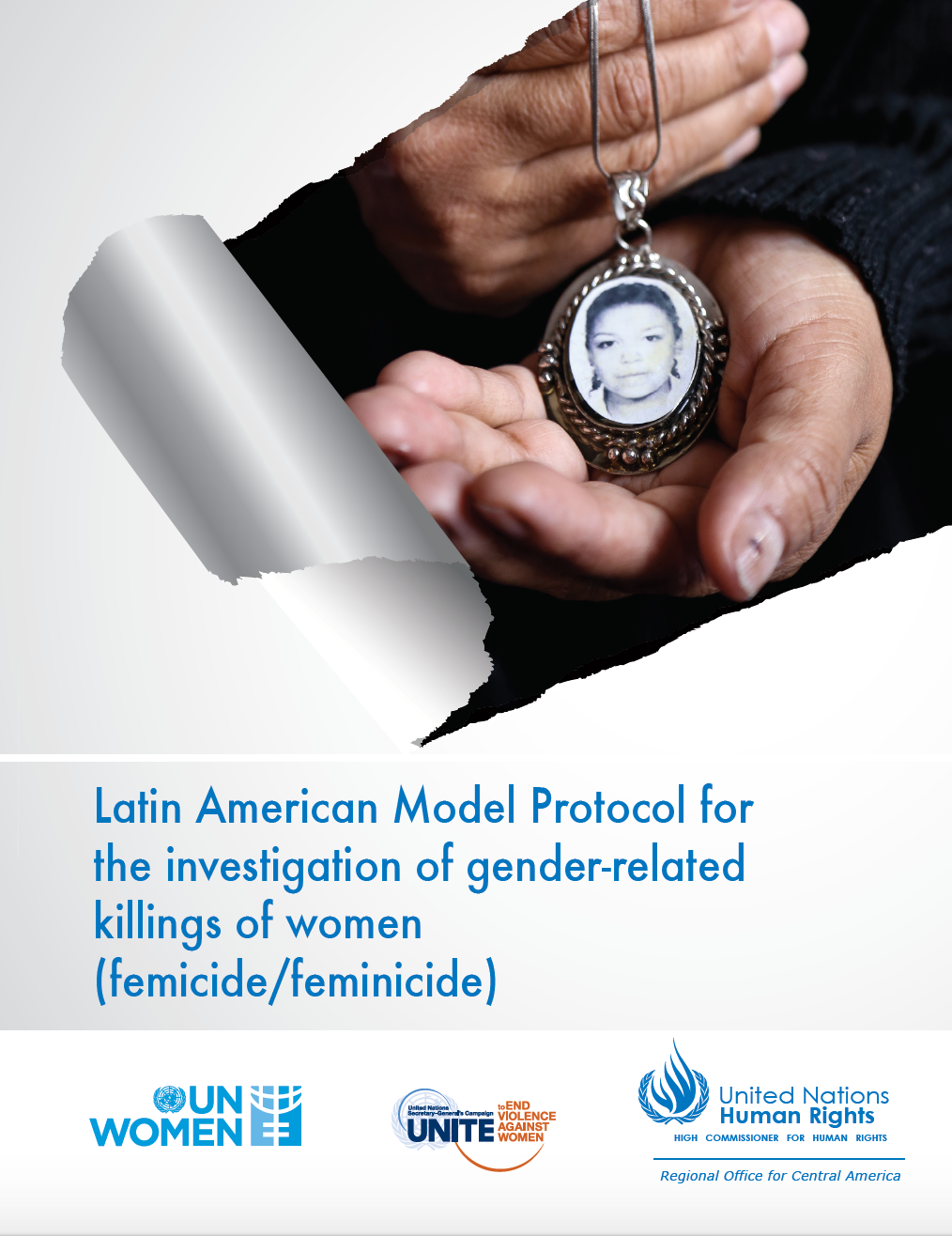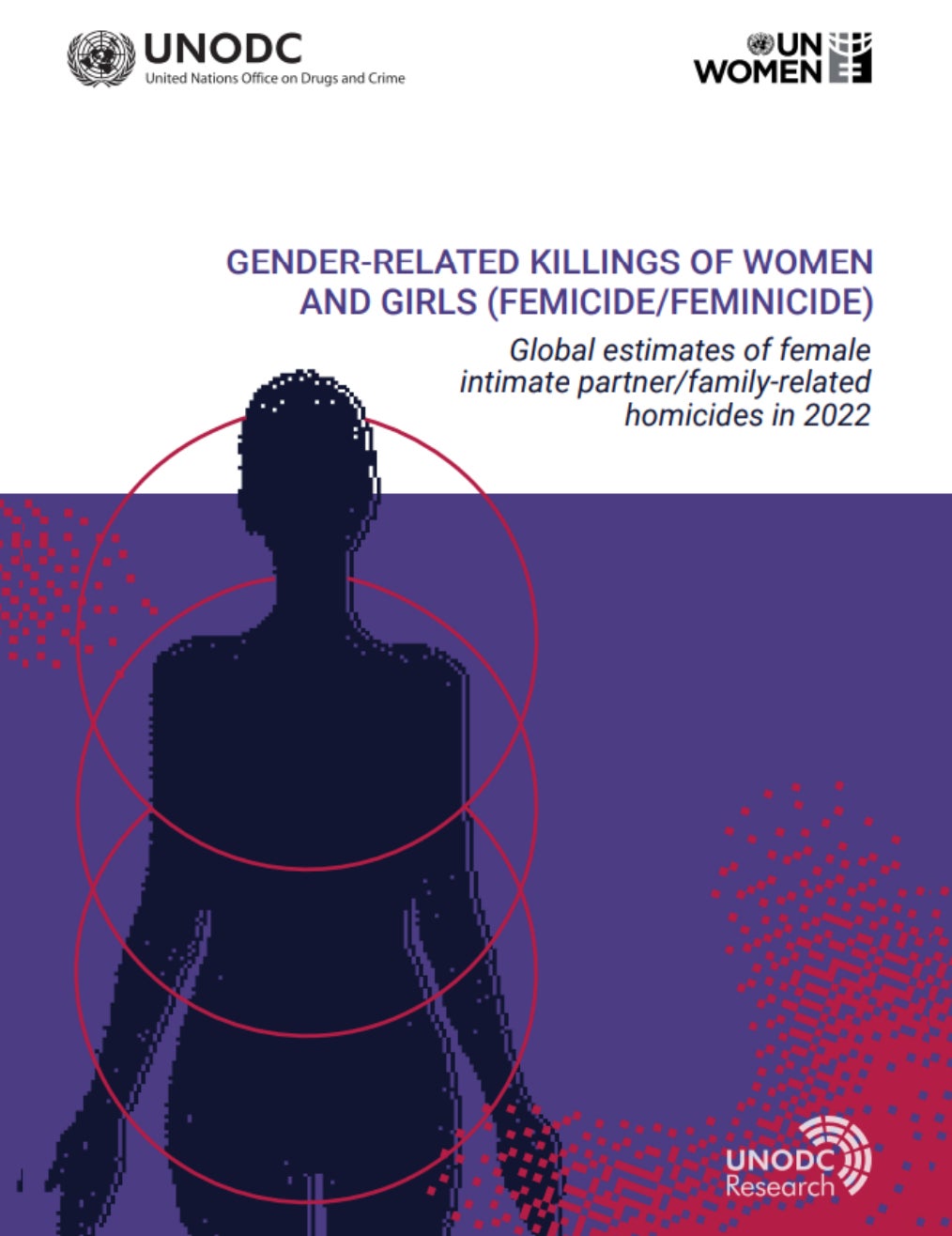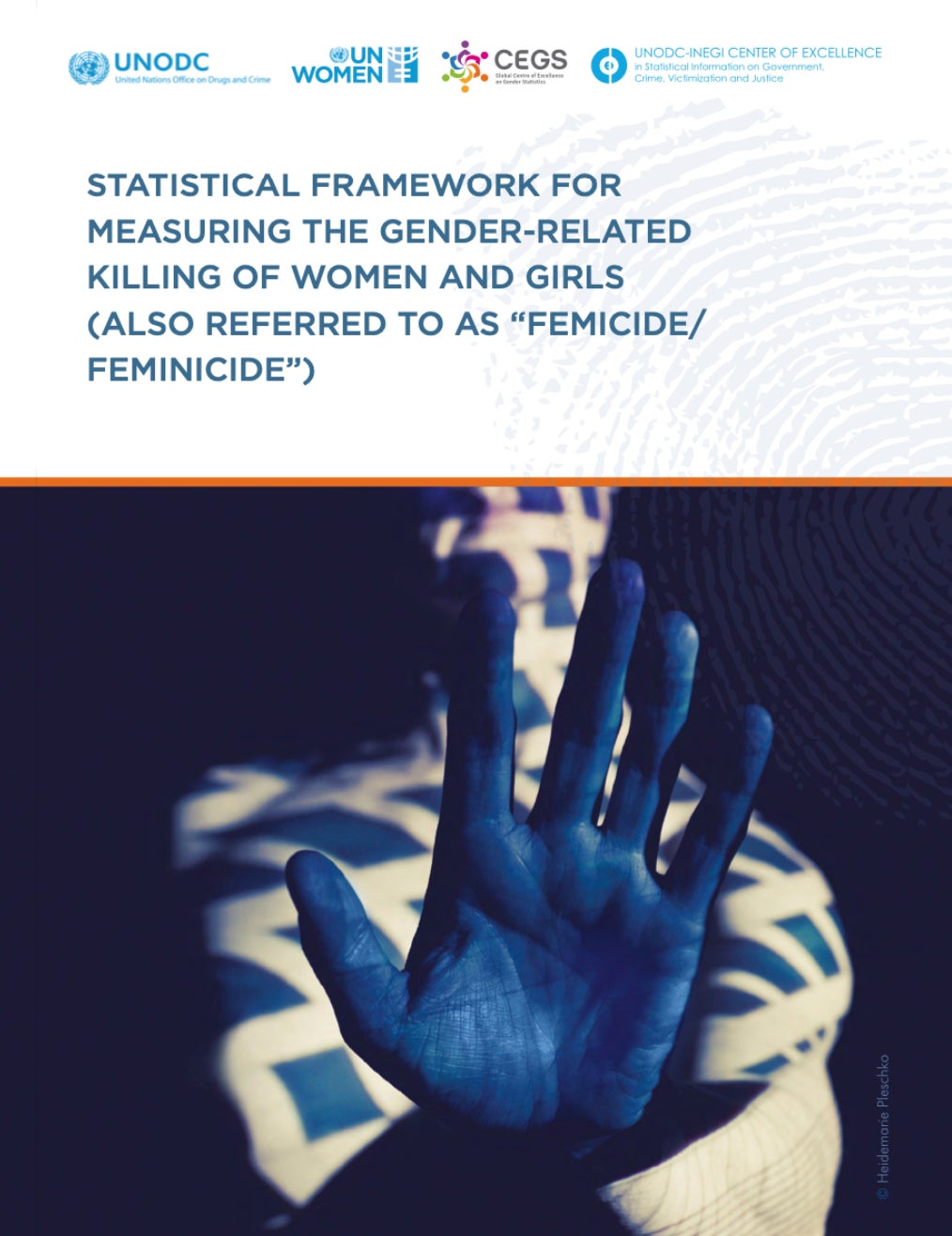In Focus: Femicide research in Kazakhstan, Tajikistan, and Uzbekistan
Date:
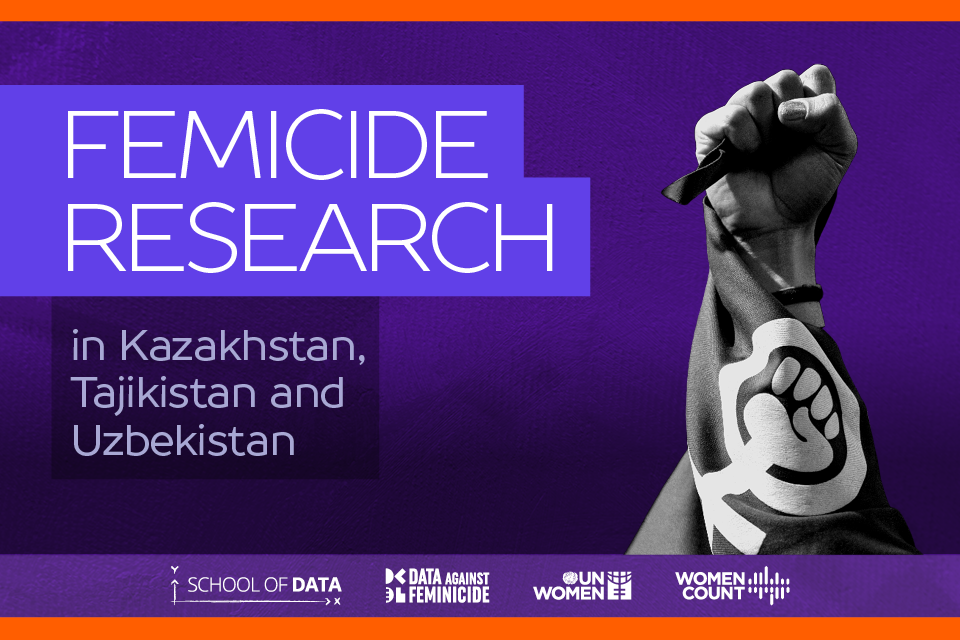
About | Open call | Key dates | Our team | Research projects | News and stories | Learn more
Gender-related killings (femicide/feminicide) are the most brutal and extreme manifestation of violence against women and girls. Defined as an intentional killing with a gender-related motivation, femicide may be driven by stereotyped gender roles, discrimination towards women and girls, unequal power relations between women and men, or harmful social norms.
In 2022, the world witnessed a tragic peak in the intentional killing of nearly 89,000 women and girls - the highest annual figure in the past decades. Around 48,800 women and girls globally were killed by their intimate partners or family members. This translates to an average of over 133 women or girls being murdered daily by a family member.
Alternative data collection methods, such as scraping and analyzing media news and court records, are essential for measuring femicide and understanding its prevalence and patterns. Given the current limitations of publicly available data on gender-based killing of women, the new modes of data collection are increasingly important to analyze and monitor trends over time and to better understand and recognize the circumstances and situations that may lead to femicide, including shifts in public discourse and societal attitudes towards violence against women and girls. This method also offers real time data to raise awareness among the public and policymakers and informs evidence-based interventions to prevent such crimes against women and girls.
One of the key priorities of the UN Women regional programme “Making Every Woman and Girl Count” (Women Count) is the use of alternative data-collection methods to address data gaps and promote more comprehensive gender data and evidence. In March 2024, UN Women in collaboration with the School of Data and Data against Feminicide launched a multi-country initiative to generate new data to assess and understand the prevalence of femicide in Kazakhstan, Tajikistan and Uzbekistan. These data aim to spur strategic advocacy for the legal recognition of femicide and inform evidence-based actions and strategies to prevent violence against women and girls in Central Asia.
Check this webpage for news and updates on femicide research in Kazakhstan, Tajikistan, and Uzbekistan, and join the conversation by using the hashtags #EndFemicide and #WomenCount!
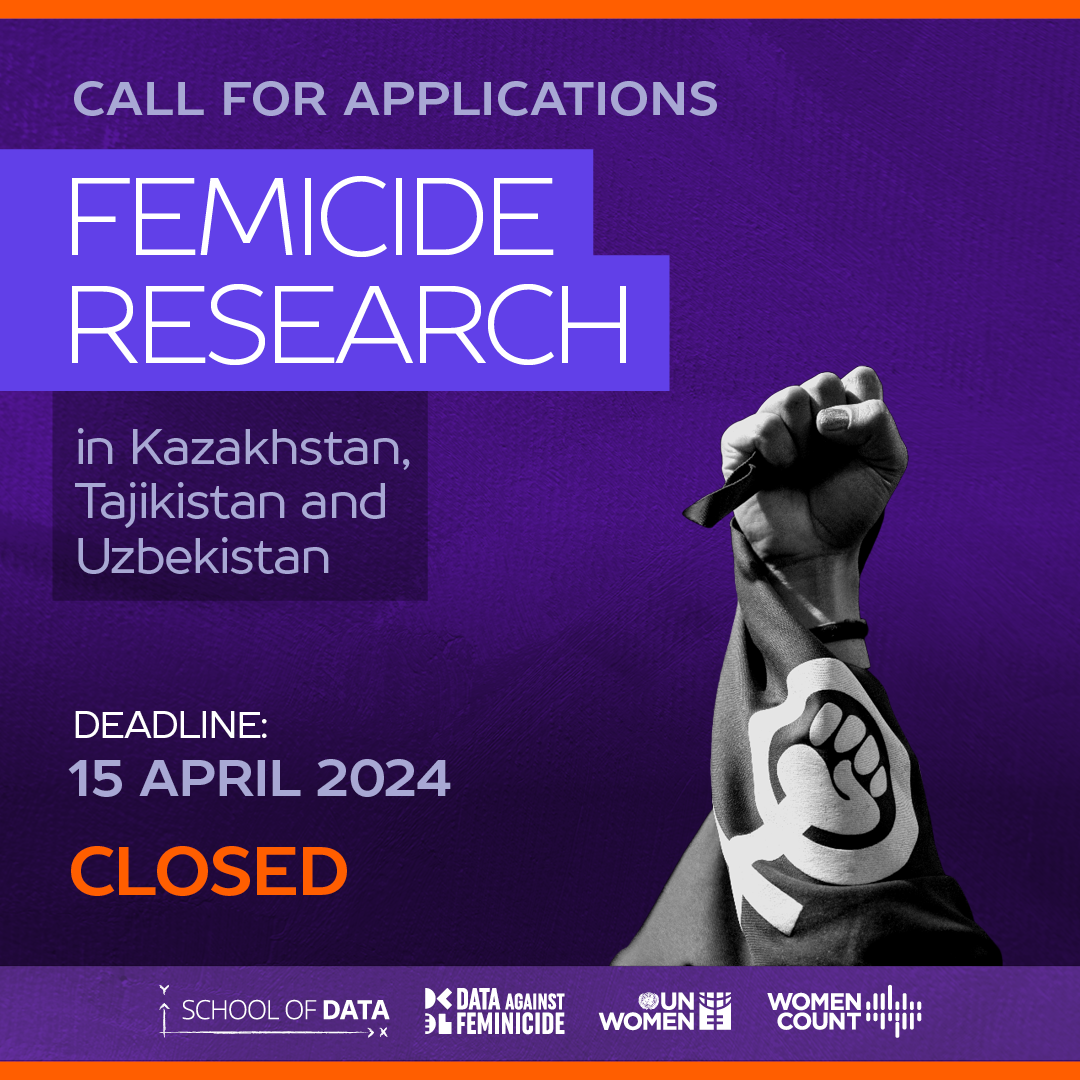
We are thrilled to announce that the call for applications [CLOSED] among researchers, journalists and gender advocates to conduct a femicide research in Kazakhstan, Tajikistan, and Uzbekistan has successfully concluded. With overwhelming enthusiasm, we have received more than 250 applications from a wide range of backgrounds across Central Asia and beyond. The initiative is dedicated to advancing research on femicide in these countries by establishing a cohesive methodology inspired by Kyrgyzstan experience and international best practice.
For more information, please refer to our Flyer and FAQ. Thank you to all who applied!
Orientation Webinar
6 May 2024In-person Workshop
26-28 May 2024Almaty, Kazakhstan
Announcement of Grants
20 June 2024Data Collection and Analysis
June-October 2024Publication of Final Products
December 2024PhD in Interdisciplinary
Studies and Research Affiliate
at MIT’s Data + Feminism Lab, Uruguay
Co-founder of Data Against Feminicide, Research Affiliate
at MIT’s Data + Feminism Lab, Argentina

Editor-in-chief of Kloop media, Sigma Awards winner,
Kyrgyzstan
IWPR Regional Program Manager,
ForSet Data Communication program
participant, Kyrgyzstan
SNAPSHOT
Counting femicide: Overview of research projects in Kazakhstan, Tajikistan, and Uzbekistan
This overview presents three selected projects funded for femicide research in Kazakhstan, Tajikistan, and Uzbekistan.











